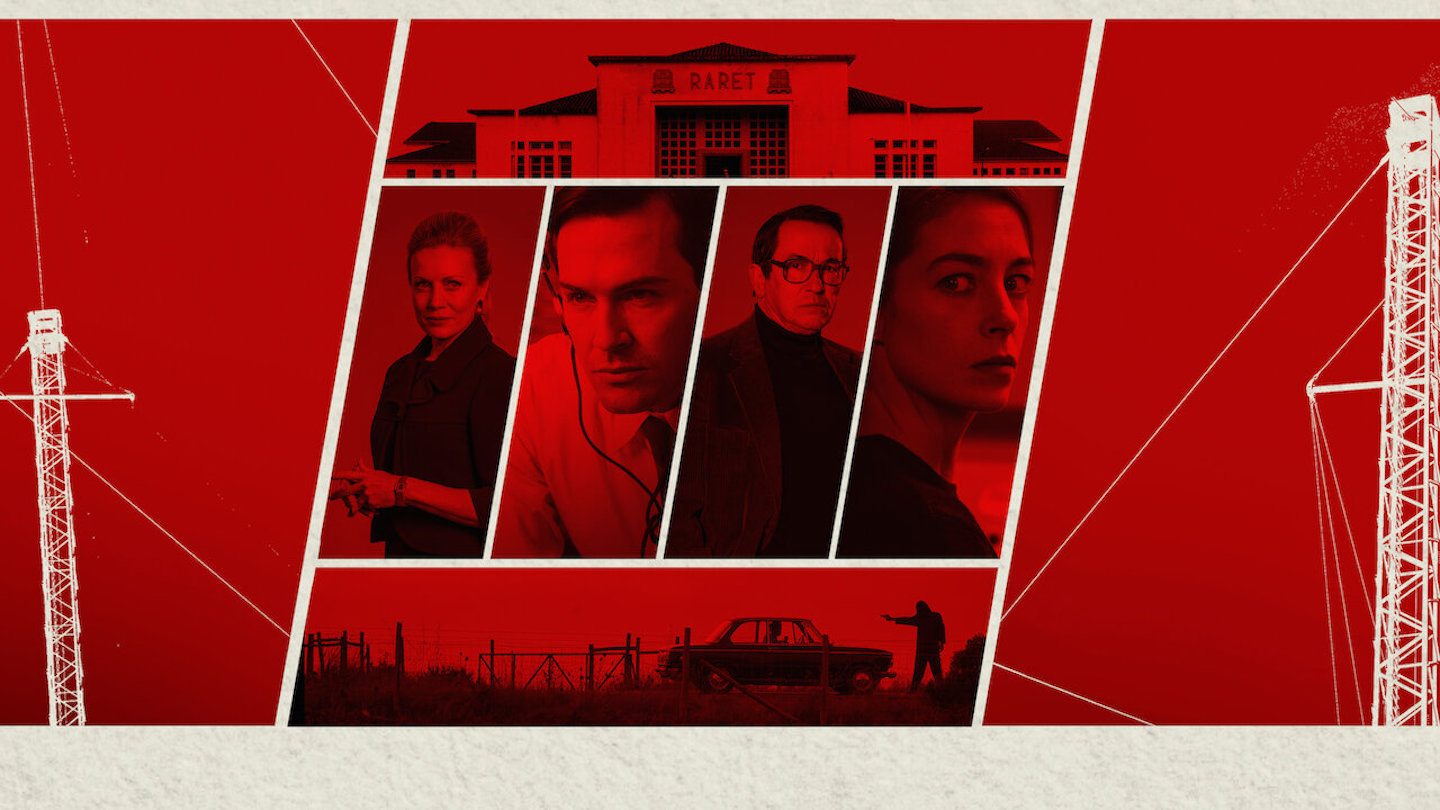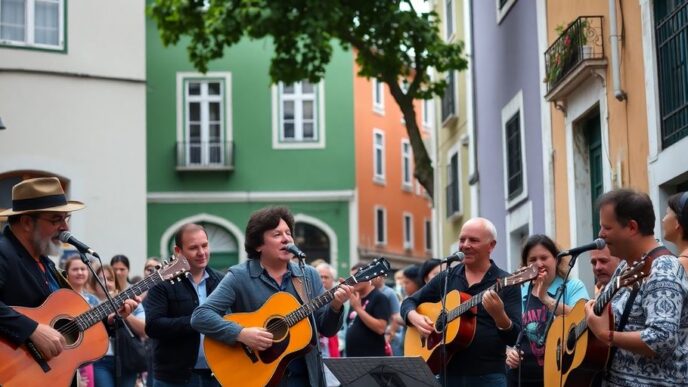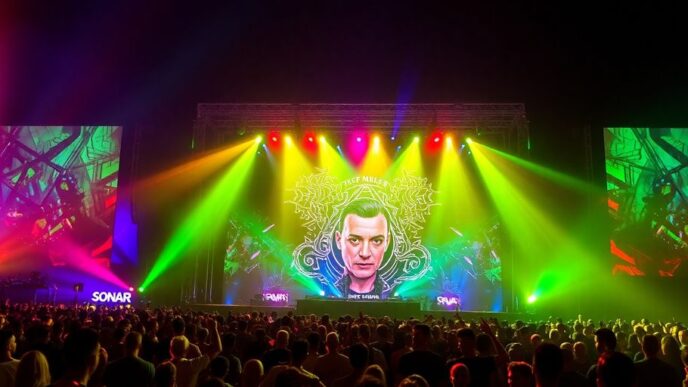Historical Context and Setting
Depiction of the Estado Novo Regime
The series is set during the Estado Novo regime, an authoritarian government led by Oliveira Salazar. This regime was known for its anti-communist stance and strict control over the country. The show portrays the harsh realities of living under such a regime, including censorship and political repression.
Recreation of 1960s Portugal
“Gloria” does an excellent job of recreating 1960s Portugal. The attention to detail in the set design and costuming helps transport viewers back in time. The small village of Gloria do Ribatejo, where much of the series is filmed, adds to the authenticity of the setting.
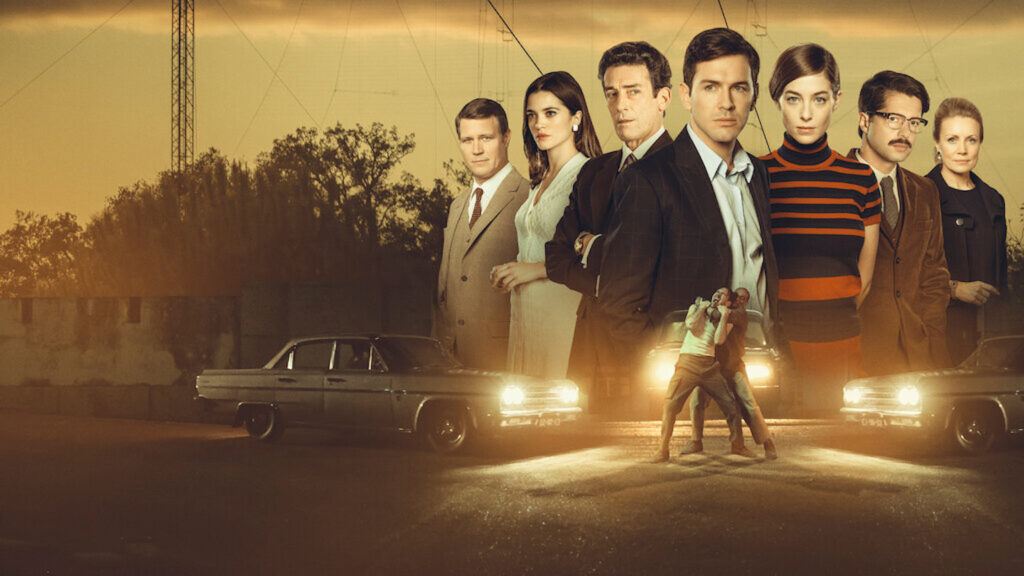
Impact of the Colonial War
The Colonial War is a significant backdrop in the series. Portugal was involved in conflicts in its African colonies, which influenced the political climate of the time. The show highlights the impact of these wars on both the soldiers who fought in them and the general population back home.
Production Quality and Design
Set Design and Authenticity
The set design in Gloria is truly remarkable. The creators have gone to great lengths to recreate the look and feel of 1960s Portugal. From the architecture to the furniture, every detail has been carefully considered to ensure authenticity. This attention to detail helps transport viewers back in time, making the story more immersive.
Wardrobe and Costuming
The wardrobe and costuming in the show are equally impressive. The characters’ outfits are not only period-appropriate but also help to define their personalities and social statuses. The use of authentic fabrics and designs adds another layer of realism to the series.
Soundtrack and Musical Score
The soundtrack and musical score of Gloria are also worth mentioning. The music perfectly complements the show’s tone and setting, enhancing the overall viewing experience. The use of traditional Portuguese music, along with original compositions, helps to set the mood and underscore the emotional moments in the series.
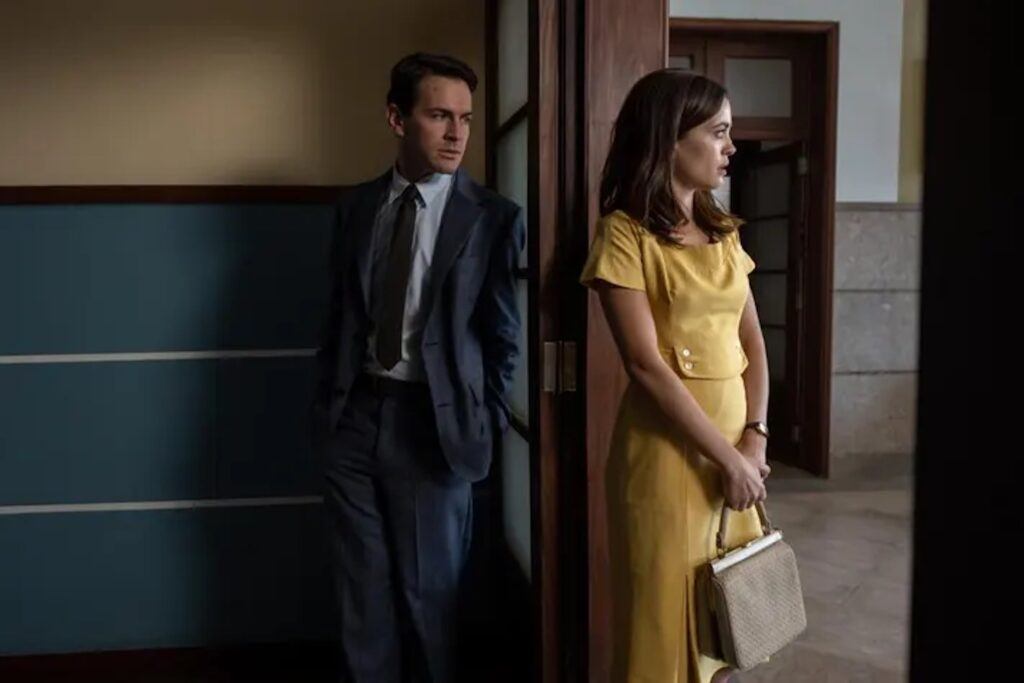
Character Development and Performances
João Vidal’s Complex Persona
João Vidal, the main character, is a deeply layered individual. His journey through the series is marked by constant plotting and internal conflicts. The show does a good job of portraying his motives, even if some of his actions seem far-fetched. His character is a blend of vulnerability and cunning, making him both relatable and intriguing.
Supporting Characters and Their Arcs
The supporting cast in Gloria adds depth to the story. Characters like Fernando Pires and Sílvia Filipe bring their own unique arcs, contributing to the overall narrative. However, some characters’ motives are not compelling enough, which can be a bit disappointing. Despite this, the side plots are interesting and help viewers understand what it was like to live in 1960s Portugal.
Notable Performances by the Cast
The performances in Gloria are a mixed bag. While some actors deliver great performances, others fall short. The American actors, in particular, struggle with their Portuguese lines, which can be distracting. However, the main cast, including Miguel Nunes as João Vidal, does a commendable job. The acting, combined with the well-written script, makes the series worth watching.
Themes and Motifs
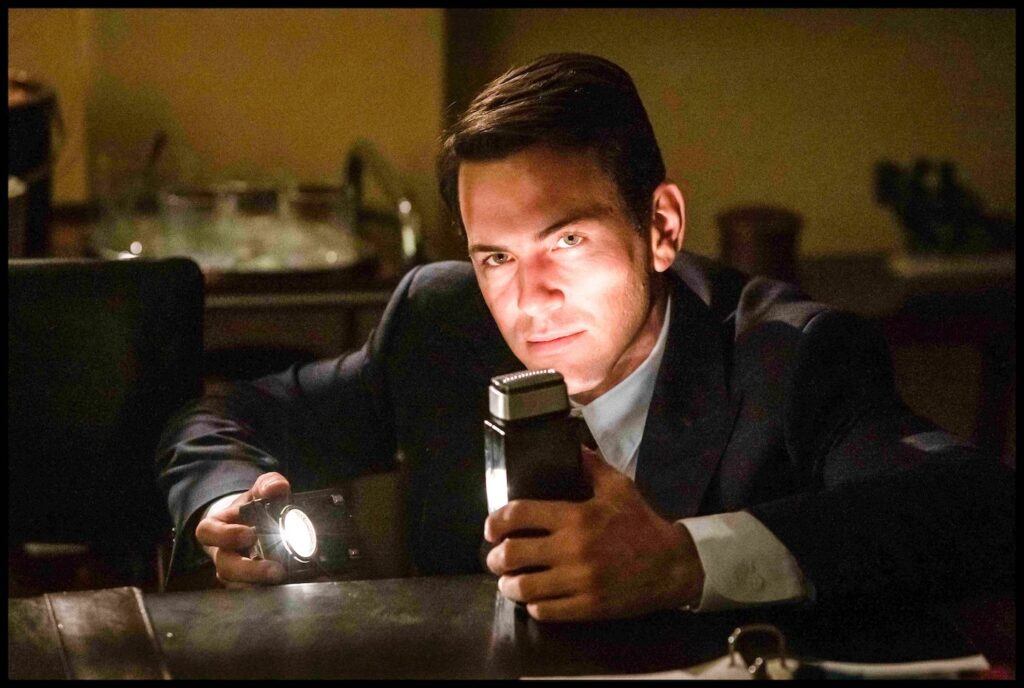
Espionage and Intrigue
Glória dives deep into the world of espionage and intrigue. The show keeps viewers on the edge of their seats with its twists and turns. João Vidal, the main character, is a double agent, which adds layers of complexity to the plot. The constant threat of being discovered keeps the tension high throughout the series.
Political Tension and Repression
Set during the Cold War, the series highlights the political tension and repression of the time. The Estado Novo regime in Portugal is depicted as oppressive, and the show doesn’t shy away from showing the harsh realities of living under such a regime. This backdrop adds a sense of urgency and danger to the characters’ actions.
Personal Struggles and Relationships
Beyond the political and spy drama, Glória also explores the personal struggles and relationships of its characters. João Vidal’s internal conflict and his relationships with other characters add depth to the story. The show portrays how personal and political lives intertwine, making the characters’ decisions even more impactful.
Cultural Significance
Portuguese Identity in Media
“Gloria” stands out as a significant milestone in Portuguese media. It showcases the country’s rich history and culture, which is often underrepresented in global media. The series provides a unique opportunity for viewers to see Portuguese actors in roles beyond the typical soap operas, offering a fresh perspective on the nation’s talent and storytelling capabilities.
Impact on Portuguese Cinema
The production of “Gloria” marks a turning point for Portuguese cinema. With its high production values and engaging narrative, the show has set a new standard for future projects. This series proves that with adequate funding and support, Portuguese filmmakers can create content that resonates on a global scale. The success of “Gloria” could pave the way for more international collaborations and higher budgets for local productions.
Comparisons to Other Series
Similar Espionage Dramas
“Gloria” shares similarities with other espionage dramas like “The Night Agent” and “The Diplomat.” These shows also delve into the world of spies, secrets, and political tension. However, “Gloria” stands out due to its unique setting in 1960s Portugal, offering a fresh perspective on the genre.
Unique Aspects of Gloria
One of the most unique aspects of “Gloria” is its Portuguese-language presentation. This adds an authentic touch to the storytelling, making it stand out from other shows in the same genre. Additionally, the show’s focus on the Estado Novo regime and the Colonial War provides a historical depth that is rarely explored in other series.
Viewer Expectations and Reality
Many viewers might come into “Gloria” expecting a fast-paced spy thriller. While the show does have its moments of high tension, it also takes time to develop its characters and setting. This slower pace might not meet everyone’s expectations, but it allows for a richer, more immersive experience.
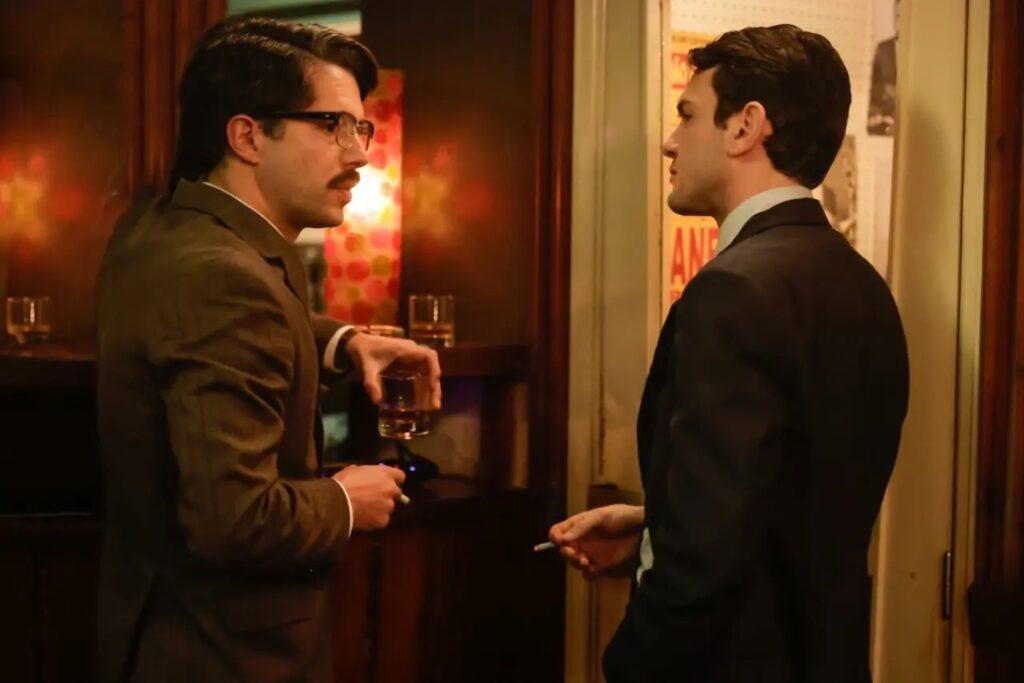
Historical Accuracy
True Events and Fiction
“Gloria” is set during the Cold War, a period marked by intense political tension between the United States and the Soviet Union. The show does a commendable job of blending true events with fictional elements to create a gripping narrative. However, some viewers have noted that the portrayal of the Portuguese Communist Party is remarkably violent, which may not be entirely accurate. The series also suggests that the Portuguese government had a poor understanding of CIA operatives in the country, which some experts believe is an exaggeration.
Depiction of the Cold War
The series captures the essence of the Cold War era, showcasing the dangerous sabotage maneuvers and espionage activities that were rampant during this time. The setting in the small village of Gloria, a real location in Portugal, adds an authentic touch to the story. The show also highlights the role of RARET, the re-broadcasting office of Radio Free Europe, which was indeed a significant player in the Cold War.
Representation of the Portuguese Communist Party
The Portuguese Communist Party’s influence is a central theme in “Gloria.” While the show accurately depicts the party’s impact on junior military officers, some critics argue that it overstates the party’s overall agency within Portugal. Despite these small discrepancies, the series effectively uses these elements to create tension and move the plot forward.
Conclusion
In summary, “Gloria” is a captivating series that brings a unique Portuguese perspective to the global stage. Set against the backdrop of the Cold War, it offers a gripping tale of espionage, political intrigue, and personal drama. The show’s meticulous attention to historical detail, combined with strong performances and a compelling storyline, makes it a standout. As the first Portuguese series on Netflix, “Gloria” not only entertains but also highlights the rich cultural and historical tapestry of Portugal. It’s a must-watch for anyone interested in a well-crafted spy thriller that also educates about a lesser-known chapter of history.
Frequently Asked Questions
What is the show Gloria about?
Gloria is a Portuguese historical thriller set in the 1960s during the Cold War. It follows João Vidal, a young engineer recruited by the KGB, as he navigates a world of espionage and political intrigue in Portugal.
Is Gloria based on real events?
Yes, while Gloria is a fictional story, it is inspired by real events and historical figures from Cold War-era Portugal.
What language is Gloria in?
Gloria is primarily in Portuguese, but it offers English subtitles and British English dubbing options.
Who are the main characters in Gloria?
The main character is João Vidal, played by Miguel Nunes. Other key characters include James Wilson, Anne O’Brien Wilson, and Alexandre Petrovsky.
How many episodes does Gloria have?
Gloria has a total of 10 episodes in its first season.
Where can I watch Gloria?
You can watch Gloria on Netflix. It is available in over 190 countries.
Has Gloria been well-received?
Yes, Gloria has received generally positive reviews for its historical accuracy, production quality, and engaging storyline.
Is there going to be a second season of Gloria?
As of now, there has been no official announcement regarding a second season of Gloria.

